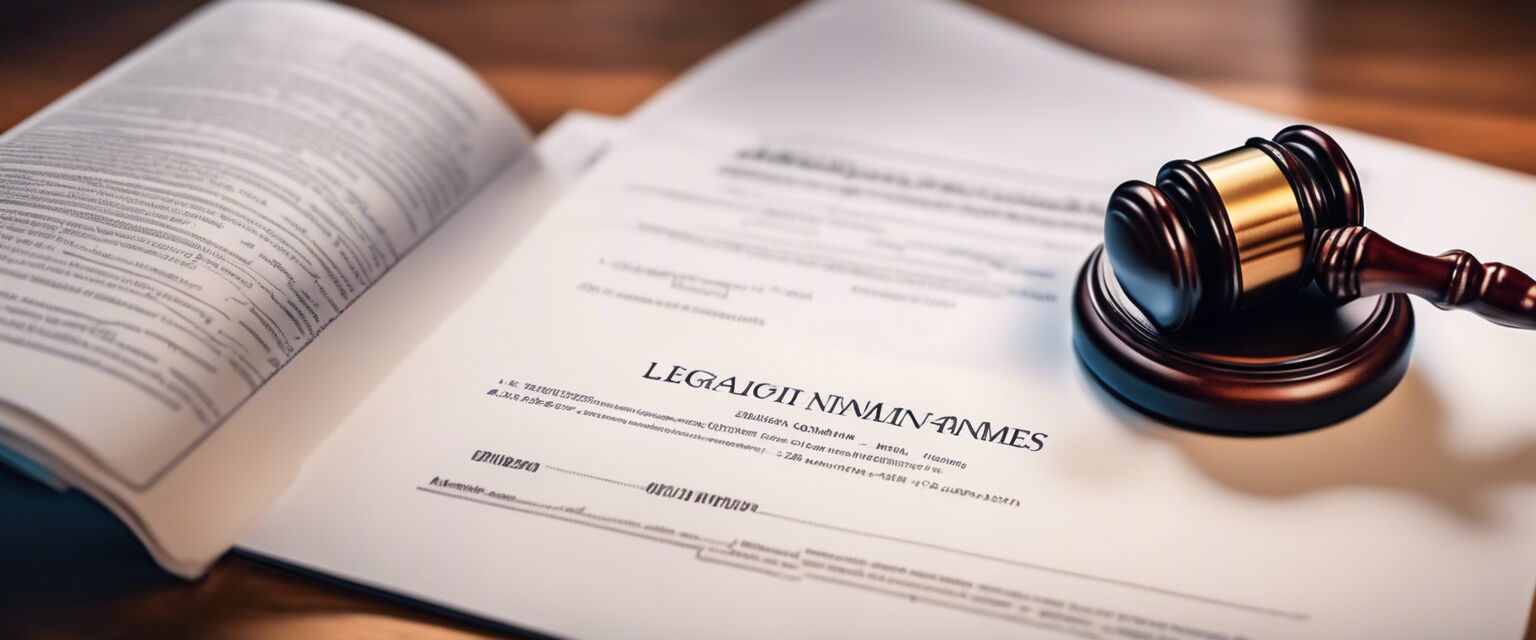
Legal Issues with Domains
Domain names are essential in today's digital landscape, serving as the online identity for businesses and individuals alike. However, the world of domain names is fraught with legal complexities and considerations that can impact owners significantly. This article provides a comprehensive overview of the legal issues related to domain names, ensuring you are well-informed and prepared to navigate these challenges.
Key Takeaways
- Domain names can be subject to trademark disputes.
- Understanding the principles of domain name registration is crucial.
- Legal aspects, including UDRP, guide domain name dispute resolutions.
- Privacy protection is vital for domain name owners.
- Compliance with laws, such as the Anti-Cybersquatting Consumer Protection Act, is necessary.
Understanding Domain Names
Before delving into the legal aspects, it's essential to understand what domain names are and their importance. A domain name serves as an address for a website, making it easier for users to access information online.
Components of Domain Names
| Component | Description |
|---|---|
| Second Level Domain (SLD) | This is the part that comes before the top-level domain (TLD), e.g., "example" in "example.com". |
| Top-Level Domain (TLD) | This is the last part of the domain name, such as ".com", ".org", or ".net". |
Common Legal Issues with Domain Names
Various legal issues can arise when dealing with domain names. Below are some of the most common concerns:
- Trademark Infringement: Using a domain name similar to a registered trademark can lead to legal disputes.
- Cybersquatting: Registering domain names to profit from the goodwill of a trademark can result in legal actions.
- Domain Name Disputes: Conflicts between two parties claiming rights to the same or similar domain names.
- Registration and Ownership: Questions about who holds the rights to a domain name can lead to disputes.
Trademark Infringement
When a domain name closely resembles a trademark, the owner of the trademark may claim infringement. It's crucial to conduct a trademark search before registering a domain to avoid potential legal issues.
Cybersquatting
Cybersquatting involves registering domain names that are similar to well-known trademarks with the intent to sell them at a higher price. The Anti-Cybersquatting Consumer Protection Act (ACPA) provides a legal framework for combating this practice.
Domain Name Disputes
Disputes can arise over domain names in various scenarios, including:
- Two businesses seeking the same domain name.
- Disagreements over ownership after a sale.
Registration and Ownership
Understanding the registrant and the rights associated with domain name registration is vital. Always ensure that the registration details are accurate and up-to-date.
Pros
- Clear legal frameworks exist to resolve disputes.
- Trademark protections help safeguard brand identity.
- Domain registration can provide legal ownership rights.
Cons
- Legal disputes can be time-consuming and costly.
- Complexity of laws may confuse domain owners.
- Risks of legal action if not properly researched.
Domain Name Dispute Resolution Policies
The Uniform Domain-Name Dispute-Resolution Policy (UDRP) is a crucial mechanism for resolving disputes regarding domain names. It provides a streamlined process for parties to settle their differences without resorting to litigation.
How UDRP Works
| Step | Description |
|---|---|
| Filing a Complaint | The complainant submits a complaint to an approved dispute resolution service provider. |
| Response | The domain holder can respond to the complaint within a specified time frame. |
| Panel Decision | A panel of experts reviews the case and makes a decision. |
Protecting Your Privacy
Privacy protection is essential for domain name owners. Many registrars offer services to hide personal information from public databases. This is crucial for protecting against spam and potential legal issues.

Importance of Privacy Protection
- Prevents unsolicited contacts.
- Protects personal information from potential misuse.
Conclusion
Understanding the legal issues surrounding domain names is crucial for anyone looking to establish a presence online. From trademark rights to dispute resolution, being informed can help you avoid pitfalls that may arise. As the digital landscape continues to evolve, staying updated on legal considerations will empower you to protect your online identity effectively.
Tips for Domain Name Owners
- Conduct thorough research on trademark registrations before choosing a domain name.
- Consider privacy protection services when registering your domain.
- Stay informed about the UDRP process to resolve disputes effectively.
- Regularly check the registration details of your domain name.
Further Reading
- Legal aspects of domain names
- Domain name fundamentals
- Domain investing insights
- History of domain names
- Domain name SEO guide









